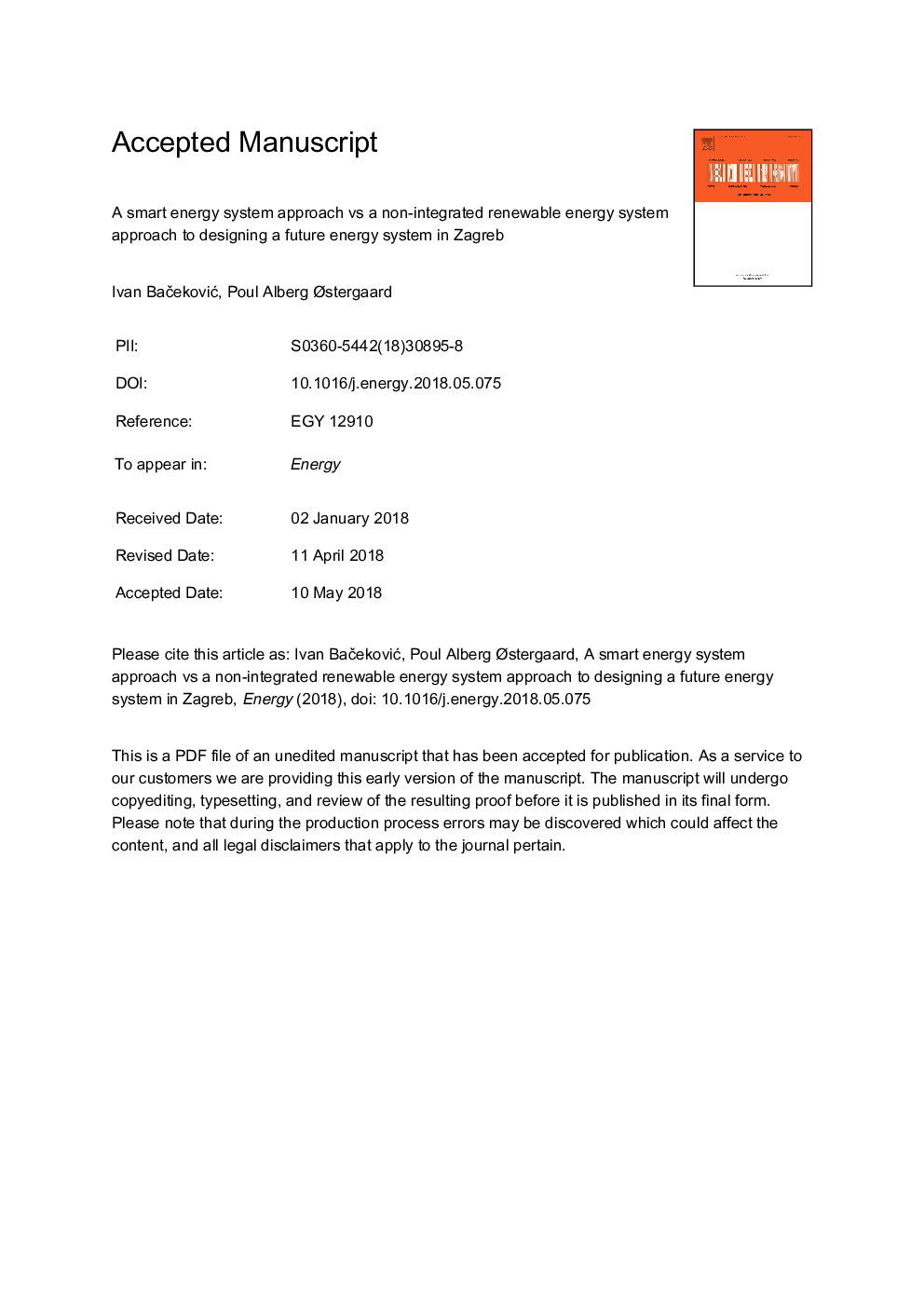| Article ID | Journal | Published Year | Pages | File Type |
|---|---|---|---|---|
| 8071538 | Energy | 2018 | 25 Pages |
Abstract
There are various approaches to developing a 100% renewable energy system and choosing the optimal one depends on a series of factors. This article tackles that problem by comparing two possible ways of developing a 100% renewable energy system, using Zagreb, the capital of Croatia, as a case. The first one is a traditional non-integrated renewable energy system, where each energy sector is developed independently, while the second is based on the smart energy system concept, where different sectors are linked together in order to exploit synergies and increase the efficiency of the system. Scenarios for Zagreb according to these two approaches are developed and modelled in EnergyPLAN. The results show that a smart energy system can reach up to 49% of the total electricity production from intermittent sources on a yearly basis, while a traditional non-integrated system utilizes 50% more biomass than what is assessed to be sustainable. Therefore, a smart energy system is a beneficial option for Zagreb in terms of technical feasibility, while from an economic perspective, the total costs of the two scenarios are essentially at the same level.
Related Topics
Physical Sciences and Engineering
Energy
Energy (General)
Authors
Ivan BaÄekoviÄ, Poul Alberg Ãstergaard,
